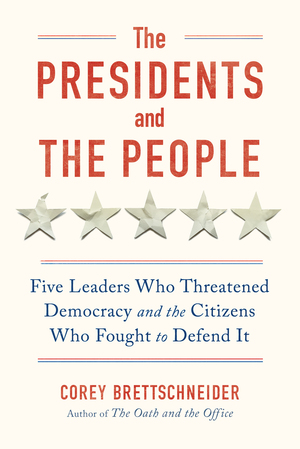Corey Brettschneider’s The Presidents and the People illuminates how John Adams, James Buchanan, Andrew Johnson, Woodrow Wilson, and Richard Nixon all acted in ways that overtly challenged core features of constitutional democracy: using the power of the state to silence and punish political critics, acting against the clear purpose of the Civil War amendments and their promise of equal citizenship with regard to race, and disregarding the rule of law by refusing to recognize any limits on executive power. While they did not all threaten constitutional democracy in the same manner, let alone to the same extent—a vast gulf separates John Adams and Andrew Johnson—Brettschneider’s argument is a timely reminder that America’s most powerful political office has not only been occupied by the unworthy before, but that more than once in our history the immense power of that office has been wielded in a manner that imperiled American democracy.
Yet this power was resisted. Not always by courts or Congress, but by citizens acting, speaking, writing, and organizing to defend the Constitution. Ordinary citizens—or, more aptly, extraordinary citizens who held no official or prominent office—helped build political coalitions that worked to secure constitutional government against presidential overreach. Brettschneider’s five case studies are compulsively readable, bringing vividly to life some of the lower moments of America’s history, while offering hope by spotlighting the citizens who fought for constitutional democracy.
IF AMERICAN INSTITUTIONS are famous for the Madisonian idea that ambition counters ambition, what happens when institutions acquiesce to presidents exercising power in constitutionally harmful ways? This is the story of the Sedition Act of 1798, passed by Congress, signed into law by President John Adams, and upheld by the courts. While Adams is a complicated case because he did so much to help establish constitutional democracy in America, there is no denying that in one of the first great conflicts on the meaning of republican government, President Adams used the power of his office to silence and jail his political critics.
The Sedition Act made it a crime to write or speak “false, scandalous, and malicious” things against the government with the intent to defame it or bring it into disrepute. Defenders insisted it was necessary to protect republican government. Critics argued that it perverted republican government, insulating the government from criticism by the people whom it was meant to serve.
